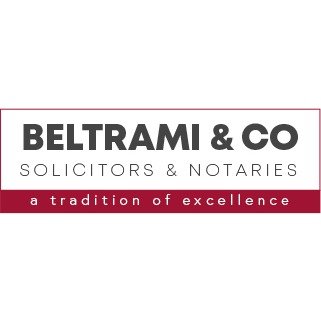Best Nonprofit & Charitable Organizations Lawyers in Glasgow
Share your needs with us, get contacted by law firms.
Free. Takes 2 min.
List of the best lawyers in Glasgow, United Kingdom
About Nonprofit & Charitable Organizations Law in Glasgow, United Kingdom
Nonprofit and charitable organizations play a vital role in the social fabric of Glasgow, addressing a wide array of community needs and initiatives. These organizations are governed by a framework of laws and regulations designed to ensure transparency, accountability, and integrity in their operations. The distinction between nonprofits and other entities primarily lies in their purpose; nonprofits aim to advance public benefit rather than generate profit for shareholders. Whether it is a charitable trust, association, or company limited by guarantee, each must adhere to specific legal requirements and guidelines to maintain their status and further their mission.
Why You May Need a Lawyer
Engaging with a lawyer specializing in nonprofit and charitable organizations can be crucial in several situations. Founders often require legal assistance during the formation process to ensure proper structuring and compliance with regulatory standards. Organizations may also encounter legal challenges related to governance, funding, contracts, and employment law. Changes in regulations or engaging in complex transactions, such as mergers or affiliations with other entities, may necessitate legal guidance. Additionally, legal advice is critical when dealing with tax obligations, charity registrations, and filing requirements, ensuring that organizations maintain their tax-exempt status and operate within the law.
Local Laws Overview
Nonprofit laws in Glasgow are subject to national regulations laid out by the United Kingdom's Charity Commission and the Office of the Scottish Charity Regulator (OSCR). Key aspects include the requirement for registration with OSCR if an entity wants recognition as a charity, adherence to specific governance structures, and comprehensive reporting and transparency mandates. Additionally, there are specific laws governing trustees’ responsibilities, tax obligations linked to charitable status, and fundraising regulations. Compliance with these laws is imperative to ensure the legitimacy and operational sustainability of a nonprofit in Glasgow.
Frequently Asked Questions
What is the process for registering a charity in Glasgow?
Charities in Glasgow must register with the Office of the Scottish Charity Regulator (OSCR). The registration involves demonstrating that the organization’s activities are charitable and providing governance structures like a board of trustees.
What are the requirements for maintaining charitable status?
To maintain charitable status, organizations must comply with the regulations set by OSCR, which includes filing annual reports, financial statements, and ensuring that all activities align with their charitable purposes.
Can a nonprofit organization in Glasgow earn a profit?
Nonprofit organizations can generate a surplus, but it must be reinvested into the charitable activities of the organization and not distributed as profits to members or officers.
What are the tax benefits available to charities in Glasgow?
Registered charities in Glasgow are eligible for several tax reliefs, including exemptions from income tax, corporation tax, and capital gains tax on most forms of income and gains. VAT reliefs and business rate reliefs may also apply.
What legal responsibilities do trustees have?
Trustees have a fiduciary responsibility to manage the charity’s resources prudently, ensure compliance with laws and governing documents, and further the charity’s purpose efficiently and effectively.
How can a nonprofit legally fundraise in Glasgow?
Nonprofits must adhere to legal guidelines governing public collection, secure appropriate licenses for events, and comply with the Fundraising Regulator’s code of practice, which emphasizes transparency and donor rights.
What legal issues should be considered when hiring employees?
Nonprofits must adhere to employment laws, including contracts, minimum wage requirements, health and safety standards, and statutory benefits. Employment agreements should clarify roles and expectations.
Are there restrictions on political activities for charities?
While charities can engage in campaigning and advocacy related to their charitable purposes, they must avoid party political activities and ensure their actions are non-partisan and not influenced by outside interests.
Do nonprofits need to disclose financial information to the public?
Yes, all registered charities must submit annual accounts and reports to OSCR, which are then made available to the public. Transparency is crucial for maintaining trust and accountability.
What should be considered when updating governing documents?
Updates to governing documents must reflect current practices, comply with legal standards, and be approved formally by the relevant body, such as the board of trustees and, in some cases, OSCR.
Additional Resources
For legal advice or questions concerning nonprofit organizations, the following resources can be invaluable:
- Office of the Scottish Charity Regulator (OSCR) provides guidance on charity regulations.
- The Charity Commission for England and Wales offers comprehensive resources on nonprofit compliance.
- The Fundraising Regulator ensures ethical funding practices.
- Local law firms specializing in charity law can offer personalized legal advice.
Next Steps
If you believe that legal assistance is necessary for your nonprofit initiative, consider the following steps:
- Identify specific legal needs related to your circumstances or concerns.
- Research and contact lawyers or law firms with expertise in nonprofit law in Glasgow.
- Prepare relevant documentation and questions for your consultation.
- Engage a legal professional to ensure your organization is compliant and protected, paving the way for effective and sustainable operations.
Lawzana helps you find the best lawyers and law firms in Glasgow through a curated and pre-screened list of qualified legal professionals. Our platform offers rankings and detailed profiles of attorneys and law firms, allowing you to compare based on practice areas, including Nonprofit & Charitable Organizations, experience, and client feedback.
Each profile includes a description of the firm's areas of practice, client reviews, team members and partners, year of establishment, spoken languages, office locations, contact information, social media presence, and any published articles or resources. Most firms on our platform speak English and are experienced in both local and international legal matters.
Get a quote from top-rated law firms in Glasgow, United Kingdom — quickly, securely, and without unnecessary hassle.
Disclaimer:
The information provided on this page is for general informational purposes only and does not constitute legal advice. While we strive to ensure the accuracy and relevance of the content, legal information may change over time, and interpretations of the law can vary. You should always consult with a qualified legal professional for advice specific to your situation.
We disclaim all liability for actions taken or not taken based on the content of this page. If you believe any information is incorrect or outdated, please contact us, and we will review and update it where appropriate.










